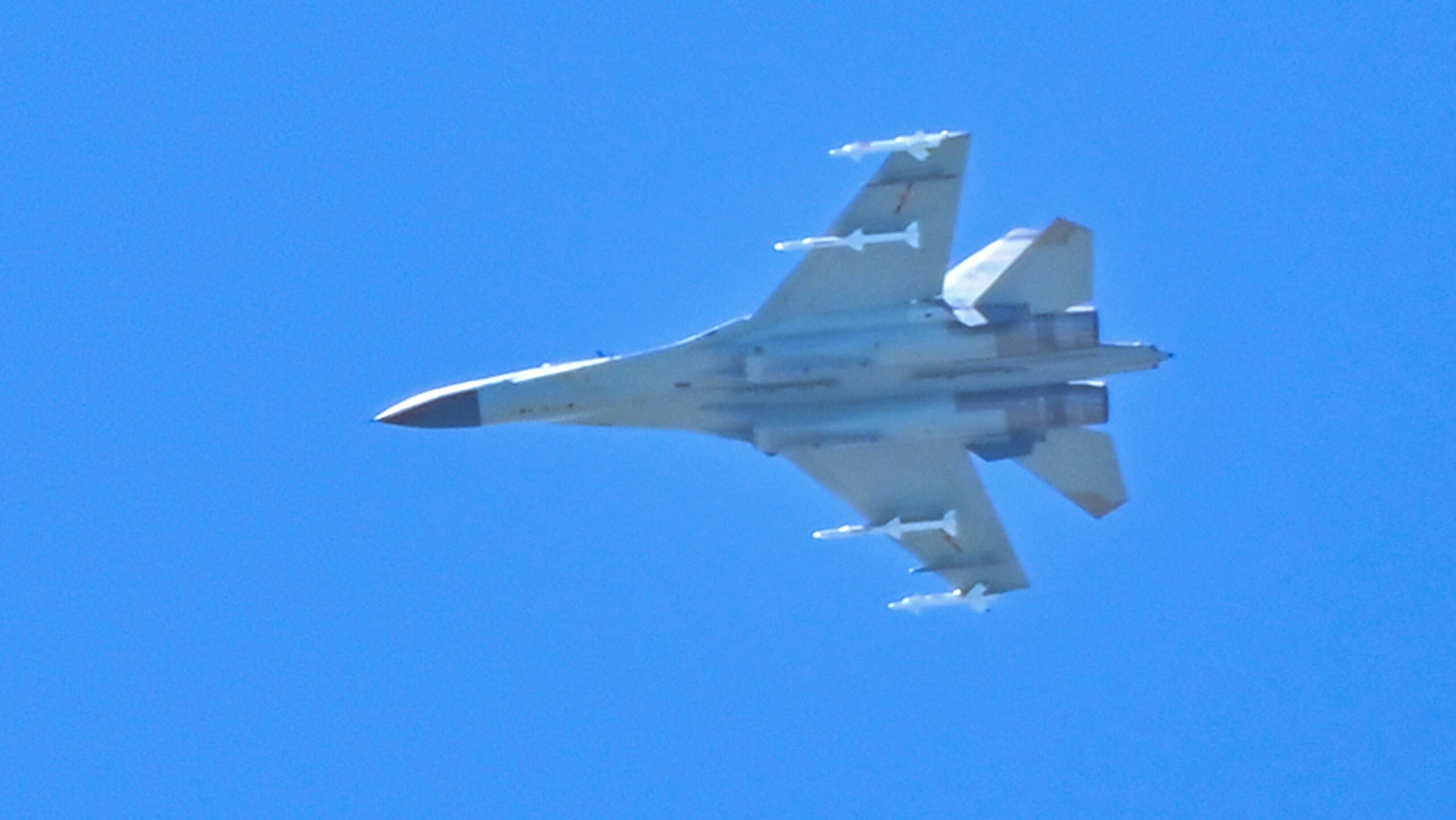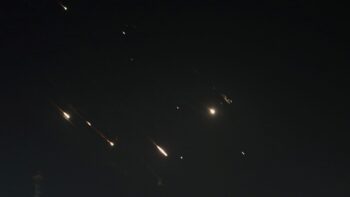
A Chinese military jet flies over Pingtan island, one of mainland China’s closest point from Taiwan, in Fujian province on August 5, 2022. (Hector Retamal/ AFP)
WASHINGTON — The Pentagon’s top policy official refuted reports claiming that US officials now believe China could invade Taiwan by 2024, but stated that China’s recent military activities around Taiwan are an attempt to create instability in the region.
“Clearly, the PRC is trying to coerce Taiwan. Clearly, they’re trying to coerce the international community. And all I’ll say is, we’re not going to take the bait and it’s not going to work,” Colin Kahl, undersecretary of defense for policy, told reporters today.
“It’s a manufactured crisis, but that doesn’t mean we have to play into that. I think it would only play to Beijing’s advantage. What we’ll do instead, is to continue to fly, to sail and to operate wherever international law allows us to do so and that includes in the Taiwan Strait, and we will continue to stand by our allies and partners in the region.”
Kahl’s comments come just days after US House Speaker Nancy Pelosi’s visit to Taiwan, which inflamed Beijing and prompted a series of Chinese military exercises. In the wake of the visit, which spanned from Aug. 2 to Aug. 3, numerous media outlets such as Fox News have reported that China could seek to mount an invasion of Taiwan as early as 2024 — when both Taiwan and the United States are set to hold presidential elections — citing statements from current and former US officials.
RELATED: As China launches missiles and makes threats, Pacific nations keeping a cool head
But when asked whether the United States had a new assessment that China could attempt to take over Taiwan in two years, Kahl replied, “No.”
Still, Kahl said the Pentagon was watching closely military demonstrations China held last week, where it simulated a blockade around Taiwan using ships and aircraft that crossed over the median line between China and Taiwan.
“Clearly what they’re trying to do is salami slice their way into a new status quo,” he said. While China’s activities don’t seem to have had a major impact on the global economy, “obviously there could be a point at which the PRC could engage in activities that would have economic consequences” due to Taiwan’s status as the world’s largest producer of advanced semiconductors, Kahl said.
During those demonstrations, China shot about a dozen missiles that landed in the waters north and east of Taiwan, along with five missiles that landed in Japan’s exclusive economic zone, Kahl said. However, he did not go so far as to say that China had flown missiles over Taiwan.
“We know a number of missiles blew into an area where it would look like the track might be passing over Taiwan, but the reason I’m a little cautious here is because… a lot of it depends also on the loft and trajectory and what you consider to be ‘over,’” he said. “I don’t have the physics in front of me.”






















